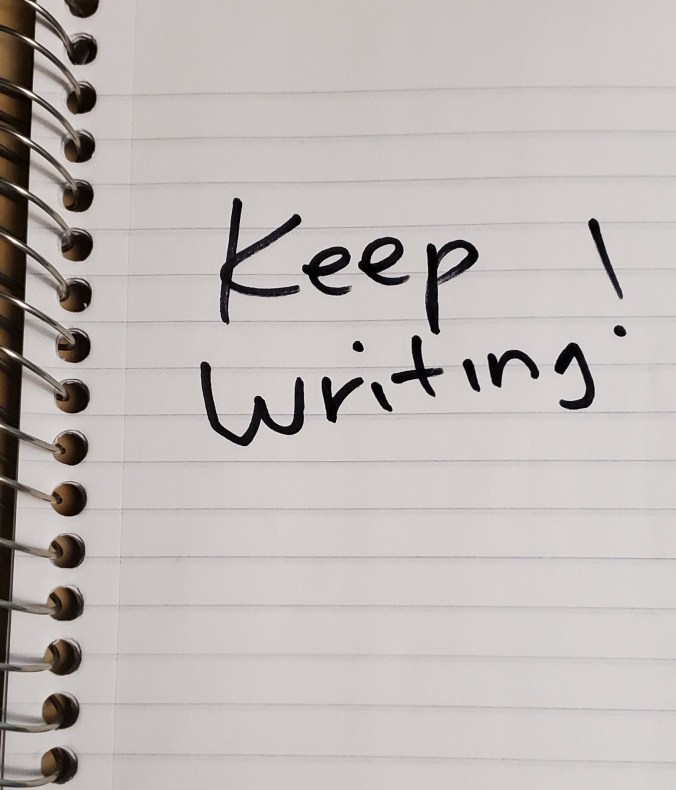The first exposure to science fiction that I remember, was Star Trek, the original series. I was supposed to be asleep, but I had slipped out of bed. I stared from the top of the stairs, while my father and an older cousin watched the show on a on a small black and white television below. Some guy with pointy ears, who I’d later learn was Spock, was leaning over and looking into a box. Canadians are supposed to be obsessed with hockey, but when I was young, if I had a choice between watching Hockey Night In Canada, or a science fiction series like Lost in Space, The Starlost or Space 1999, I’d be dreaming of deep-space travel, not winning the Stanley Cup.
Although I was constantly creating stories in my mind, I didn’t give any serious consideration to writing until I was studying Political Science at Saint Mary’s University in Halifax. The Introduction to Political Science class was using The Canadian Polity: A Comparative Introduction, a textbook written by one of my Professors, Dr. Ronald Landes. I thought to myself how impressive it was that his name was on the cover. At about the same time, Rev. Ross Perry, the Pastor of the church my family attended, had a short book published; Prime Ministers of Canada Quiz Book. It would be several years before I start writing, but the seed had been planted.
Although I hadn’t heard the term yet, when I started writing short stories, they were Space Operas. Space Operas are basically stories that take place in space, without the need for a solid scientific explanation for what happens in the story. You throw a switch, there’s a flash of light, stars are passing by at blinding speed, and you’re somewhere in a distant galaxy. Star Wars is a classic example.
Space Operas offer freedom for the writer. If you’re writing a thriller about a cruise ship taken over by terrorists, you only have so many options. The first limitation is where the rescue takes place; you might have the terrorists keep the cruise ship at sea, run it aground, or perhaps sail it up a river. In a Space Opera, the ship could travel through an asteroid field, sling-shot around a planet using it’s gravity, visit any planet or space station in the universe, or perhaps, travel through time. All the terrorists have to do is push a button, or throw a switch. If they have computer chips implanted in their brains to interact with the ship’s mainframe, or have telekinetic powers, they can just think about it.
A novel that doesn’t take place in space has another limitation as well; all the characters are human. They may have different cultural backgrounds and motives, but they all have relatively the same degree of intelligence and physical strength. In the John Wick movies, the main character seems to survive the impossible, but it’s assumed that it’s because of his extensive martial arts training and natural abilities. In a Space Opera, you can complicate the protagonist’s task, by introducing alien characters with strength, abilities, intellect and weapons an earth-bound hero is unlikely to encounter. You can also spice up your Space Opera buy having your heroine interact with artificial intelligence, either robots, androids, a ship’s operating system or all three. Data from Star Trek the Next Generation is one of the most recognizable android characters.
It’s amazing when you think about it; you open a book or eBook, and in an instant you can be immersed in a new world. Why is it that we can read novels or watch movies, where events unfold that make no sense in our regular lives, and yet there doesn’t appear to be any conflict in our minds? It’s called “The Suspension of Disbelief” and I first heard it described by writer Fred Stenson while he was promoting his book on the craft of writing, Thing Feigned or Imagined. It’s basically a contract between the author and the reader; as long as the writer doesn’t violate the rules of the world she’s created, the reader agrees to accept what occurs in that world. If the writer violates any of those rules, there has to be a valid reason. In the Harry Potter series, characters need some type of magical item to fly, like a broom or an enchanted car or motorcycle. Lord Voldemort can fly without the help of a magical item, but his character is known to experiment with magic to create exceptional results. He can fly without a broom, because he’s Lord Voldemort, so no rule has been broken.
Space Operas also give freedom to the reader; an opportunity to escape from the stress of ordinary life. Consider a Nurse working in an emergency ward during the Covid-19 crisis. She never seems to escape the virus; as she drives to and from the hospital, there are digital signs on the side of the highway reminding everyone to social distance. At the entrance to every store where she shops, there’s a poster ordering shoppers to wear masks and social distance. At the end of a long shift at the hospital, she opens a paperback, or powers up her eBook reader and escapes into a Space Opera. A moment later, she’s walking through a space station. As she reads the author’s description, she looks around, watching aliens of every sort moving through its vast atrium, stars visible through the clear ceiling. Continuing through the station, she arrives at one of the docks where a deep space freighter waits for her to board with the rest of the crew. As the story continues, she finds herself on the bridge, as the freighter leaves the space station and accelerates past stars. How are they travelling at such high speeds? No need to worry! The Captain gives an order, the Navigator pushed a button, and the interstellar, plasma-loop, hyper-something drive will take you anywhere.
If the author is a skilled writer, before she finishes the first chapter, the reader is prepared to stay with the crew and face whatever challenges come their way. The reader gets to know the crewmembers intimately, not just what rank or duties they have, but where they come from, who they admire, what their fears are, and who they want to hook up with.
In order to create a story, the reader has to work with the writer. An author writing a Space Opera can describe an alien character with orange pupils, but each reader will see a unique shade of orange in her mind. That’s the wonder of the human imagination; as the writer gives a basic description of a space station, or an alien world, the reader’s mind fills in the details to create images. If a million people read the same novel, a million distinct stories are created in their minds. It’s as if every single person has a movie theatre in his or her head, and they are all watching unique movie adaptations of the same story.
Today there are countless genres, from Magic Realism to Urban Fantasies. As for me, I still like to sit in the captain’s chair on the bridge of a starship and enjoy a Space Opera. Travelling across the universe is no problem; I’ll just push a button, and the reverse anti-matter, hyperkinetic, time-space, whatchamcallit drive will get me there.
Copyright © 2021 by J. Paul Cooper









